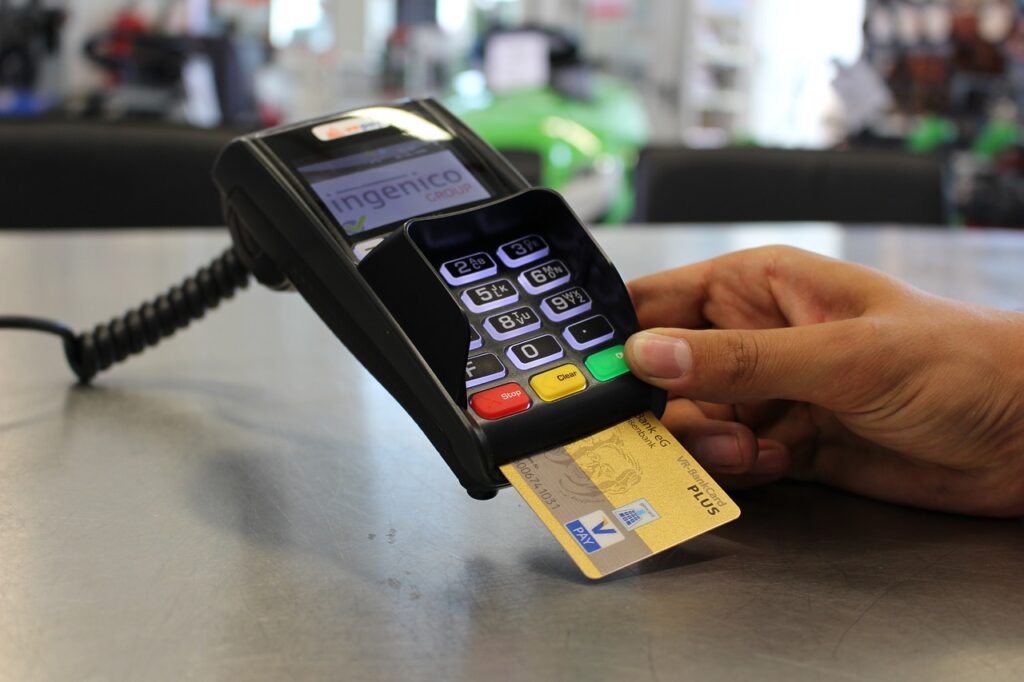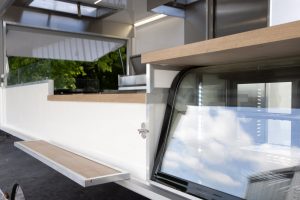Reading guide

To succeed in the competitive food truck sector, promotion is essential. At the heart of this promotion lies an often overlooked but crucial element: the point-of-sale (POS) system. In this article, we’ll explore the importance of choosing the right system, and how to find the right one for your food truck.
Understanding the importance of point-of-sale systems
An efficient point-of-sale system is more than just a means of processing transactions. It can be a catalyst for boosting your sales and improving your customers’ overall experience. Fast service and ease of use are key elements in building customer loyalty.
The different types of point-of-sale systems
In the world of food trucks, payment options are diverse. From mobile systems to dedicated software, each choice has its advantages and disadvantages. Understanding these differences is crucial to choosing the system that best aligns with your food truck’s unique needs.
Assessing your food truck’s needs
The size of your business, the complexity of your menu and other factors unique to your food truck need to be taken into account when assessing your POS requirements. A customized system can make all the difference.
Key criteria for choosing the best system
Transaction security, ease of use for staff and integration with other business tools are key criteria when choosing a POS system. By keeping these elements in mind, you can guarantee smooth, efficient operation.
Review of the best point-of-sale systems on the market
To help you in your search, we’ve reviewed some of the best POS systems on the market. From features to costs, we compare the options so you can make an informed decision.
Office POS
Desktop POS systems are used on a computer or laptop. They can take the form of an application, a browser or an on-site system. They are equipped with a cash drawer, barcode scanner and card reader. As such, they operate in the same way as a traditional cash register. Restaurants, grocery stores, retail outlets, bookshops, beauty salons and spas are just a few examples of businesses that use desktop POS systems.
Mobile point of sale
Compared to an office POS system, a mobile POS is much smaller, but just as practical. The system consists mainly of a phone application that connects to a card reader. All you have to do is activate the POS software to start selling. Optional features such as barcode scanners and receipt printers can also be added. Another advantage of a mobile POS system is that it’s portable, allowing you to record sales instantly on the spot. It is widely used by small businesses such as street vendors, trade fair and event exhibitors, as well as the self-employed.
Point of sale system for tablets
A tablet POS system is similar to a mobile POS system, as both are installed on devices with optional accessories (card reader/receipt printer). The only difference is that tablets are larger. They feature larger screens that display images more visibly and in vivid colors. What is the advantage of a point-of-sale system for companies with large inventories? It simplifies the ordering and purchasing process for your employees and customers.
Point-of-sale system for self-service kiosks
The self-service point-of-sale system enables customers to make purchases without the intervention of a salesperson. The main aim of this system is to improve operational efficiency while reducing labor costs. The configuration of a self-service POS system is similar to that of an office POS system. However, there are additional security features in the former. These ensure that all transactions are one-sided and risks are avoided. Ticket sales, parking and patient registration are some of the most common applications for self-service POS systems.
Need more information?
Questions about your new truck?
Our team is there for you! We’ll answer all your questions and guide you every step of the way. Contact us today:
Our food trucks and store trucks
Our food trucks
Pizza truck - Snack truck - Chip truck - Creperie truck - Sushi truck - Thai truck - Catering truck - etc.
Our store trucks
Hairdresser truck - Grooming truck - Event truck - Mobile office - Advertising truck - Tattler truck - etc.
These articles may be of interest to you

Food truck layout process
Guide de lecture Nous contacter Toiletteurs professionnels, ce guide est fait pour vous ! Si vous décidez de diversifier votre activité ou de vous lancer

Food truck layout process
Guide de lecture Nous contacter How can you ensure the success of your food truck layout? Appelé aussi hair truck par les professionnels, le salon

Food truck layout process
Guide de lecture Nous contacter How can you ensure the success of your food truck layout? Appelé aussi hair truck par les professionnels, le salon